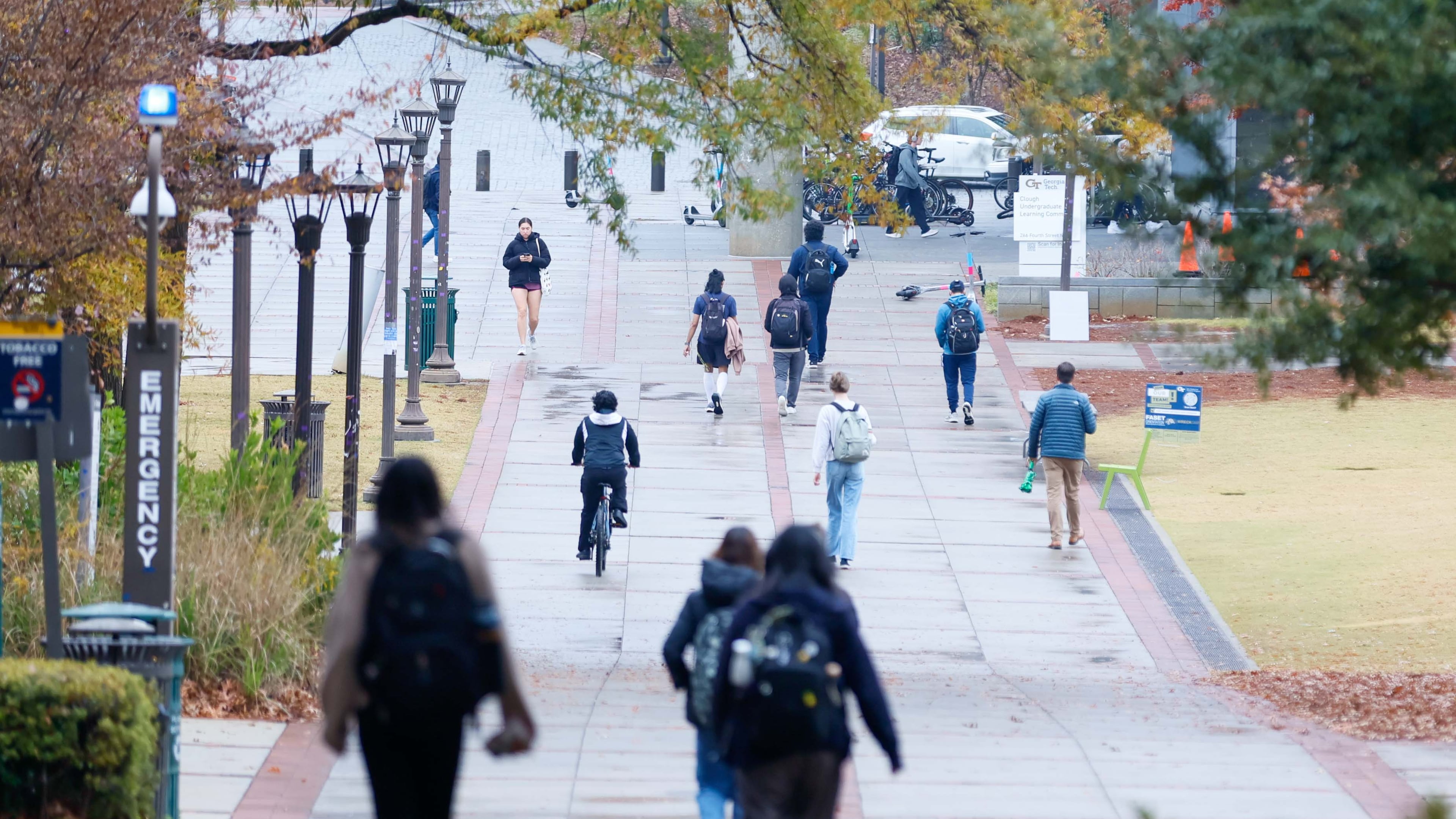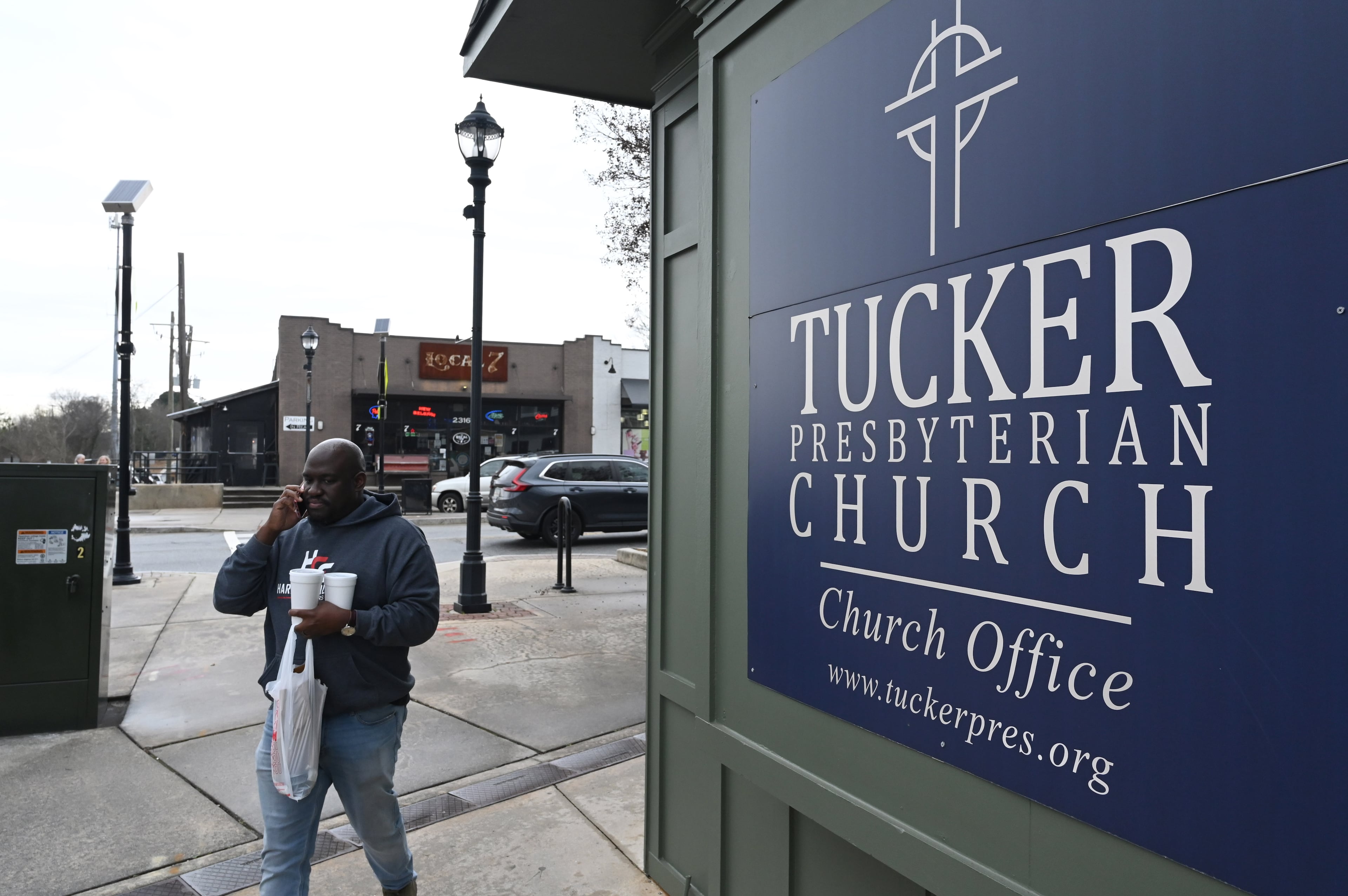Georgia public universities’ ‘return to office’ mandate may spark exodus

Early this year, presidents of Georgia’s public colleges were informed that the era of remote work was coming to an end.
University System of Georgia Chancellor Sonny Perdue told the presidents during a late January meeting that staff and faculty must be physically present on campuses during core business hours.
“Having the ability to telework is not a right — it’s an arrangement reserved for limited circumstances,” Perdue wrote in a follow-up email.
After reiterating the message at a state Board of Regents meeting last month – “If that’s not what y’all want, you let me know, because that’s where we’re going,” Perdue told the presidents and administrators in the room – it’s now up to schools to implement the mandate for the upcoming academic year. The decision will align the USG with businesses across the state that are now requiring in-person work.
But getting staff in the office five days a week comes with logistical headaches. And considering some people, including those who don’t live near campus, accepted jobs with the understanding they could work remote, the change is raising alarm.
“In the worst case, this policy may be weaponized to quietly reduce staff who cannot comply or enable unjust terminations of employees in the future,” said the United Campus Workers of Georgia, a labor union that described the move as an “irrational and unjust degradation of campus working conditions.”

At a town hall at Georgia Tech last week, multiple employees suggested the decision could lead to resignations. Administrators appear to consider it a real possibility.
“We don’t want to lose anybody, but there’s a chance we will,” said Ron Johnson, vice president of strategic initiatives at Georgia Tech. “That’s the risk that the institute has to take.”
Many of the roughly 60 people who attended wanted to know why the school would take that risk. The short answer is the USG, which oversees Georgia’s public colleges, has mandated it.
“The ‘why’ is kind of irrelevant right now,” Johnson told them. “The system has said that we’re returning to the office. We’re all part of the system, so we’re returning to the office.”
Employees who do not comply with the mandate appear to be at risk of termination.
Georgia’s public universities were quicker to hold in-person classes than most schools in other parts of the country during the first full semester after the COVID-19 pandemic in the fall of 2020. USG administrators said they heard many complaints from students and parents that too many classes were online. The approach brought criticism from many faculty members as COVID-19 cases skyrocketed on the campuses. But the schools didn’t waver and later argued they made the right call.
Town hall attendees asked if the USG had data to warrant its recent decision. If it does, the system has not shared it publicly. In a statement, the USG said that employees being on campus will allow them to focus on, “enhanced collaboration, timely support and student engagement, accountability and institutional reputation.”
And during the April Regents meeting, Perdue said that universities are in the customer service business. “My expectation is, when a family, a prospective student, or parents or grandparents call the campus on Friday afternoon, they get an answer,” Perdue said.
That expectation hasn’t been met, according to the USG. “We have received numerous concerns and complaints directly from students and parents regarding their inability to connect with staff or faculty on important matters,” it said in a statement.
Associate biology professor Jill Penn wants to know why remote work is receiving the blame for those complaints. “I know at Georgia Gwinnett College we’re severely understaffed. When somebody leaves, retires or finds another job, they’re not replaced. So that’s a much more likely explanation,” said Penn, who said she spoke on her own behalf and not for the university.
Considering Penn said GGC students do not have Friday classes during the summer, she doesn’t see the benefit in having offices fully staffed every day of the week. Instead of a one-size-fits-all approach, she suggested each university be able to determine its own guidelines. “I think there are reasonable policies they could instate without affecting morale,” she said.
While the USG has not stated publicly when exactly the mandate will take effect, Georgia Tech is aiming to phase it in over the coming months and make significant headway by August 1. According to emails sent to staff from administrators, in-person work will be the standard for school staff this upcoming academic year. “Telework will be limited to specific, approved situations when there is alignment with Institute business needs and assigned job duties,” reads a May 2 email.
The transition presents significant logistical challenges. The school has limited space to work with. As Georgia Tech has increased enrollment, it has also had to expand class hours and convert a theater into classroom to accommodate the influx of students. Now it will have to figure out where to put all its employees.
It will also have to find a solution for the finite parking spaces on campus. Employees pay roughly $800 per year to acquire permits for the already crowded lots. United Campus Workers said the need to commute would add a mounting financial burden on employees.
“The space and the parking is going to be hard y’all,” Kim Toatley, chief business officer for the university, told employees at the town hall. “We’re in downtown Atlanta. It’s not like we can just take over a building or throw up a new building. So it’s going to take time. That’s why we’re transitioning in a phased approach.”
This story has been updated to reflect that Jill Penn spoke on her own behalf and not for Georgia Gwinnett College.



